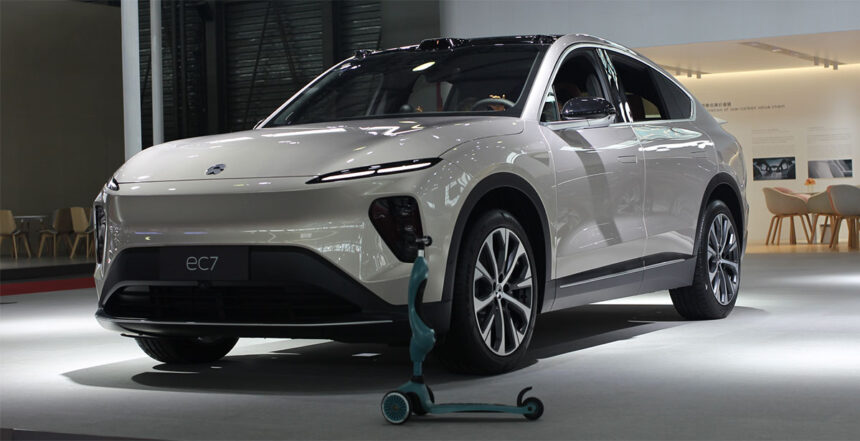Nio is set to launch its Banyan 3.1.0 system in January 2025, marking a significant milestone for the company as it introduces smart driving capabilities that incorporate end-to-end AI models for the first time. This move comes after the brand’s successful delivery of eight models in China, all based on the NT 2.0 technology platform with the Banyan vehicle system.
The upcoming Banyan 3.1.0 system represents a major leap forward for Nio, as it integrates advanced artificial intelligence architecture to enhance the driving experience for users. This development follows the launch of the Banyan 3.0.0 system in August, which focused on upgrading the smart cockpit and chassis while incorporating AI technologies.
Despite facing challenges in the development process of the end-to-end large model, Nio remains committed to delivering cutting-edge smart driving solutions to its customers. The company’s smart driving team is working diligently to address any issues and aims to roll out the new system in January.
While Nio’s assisted driving feature that enables autonomous parking may not be included in the Banyan 3.1.0 system, the company is making strides in this area. Unlike its competitors, Nio’s unique battery swap model requires additional capabilities for autonomous battery swaps in urban areas, adding complexity to its smart driving technology.
In the competitive smart driving space, Nio is striving to catch up with its major peers in terms of marketing buzz. Despite this, industry sources suggest that the actual technological gap between Nio and its competitors is not significant. Nio’s end-to-end large model architecture, slated for release early next year, is expected to bring the company closer to industry standards set by companies like Tesla.
The shift towards end-to-end intelligent driving systems is gaining momentum in the industry, with more companies in China exploring this advanced technology. Nio’s focus on end-to-end technology and its adoption of the NWM (Nio World Model) demonstrate the company’s commitment to innovation and technological advancement in the smart driving space.
As Nio prepares to launch the Banyan 3.1.0 system in January, the company is poised to deliver a more seamless and integrated driving experience for its customers. With a strong emphasis on AI models and advanced technology, Nio is setting the stage for a new era of smart driving capabilities in the automotive industry.







